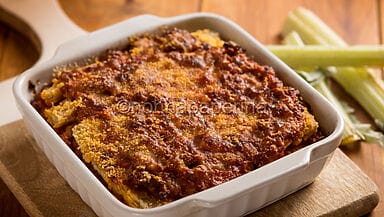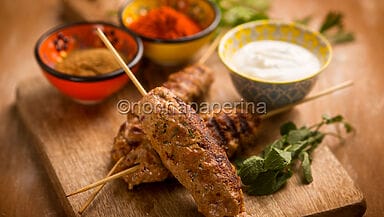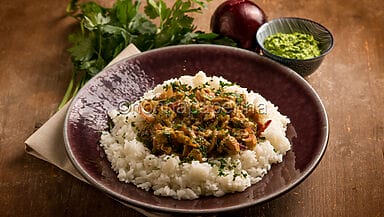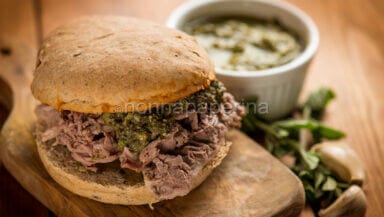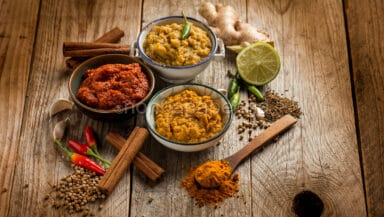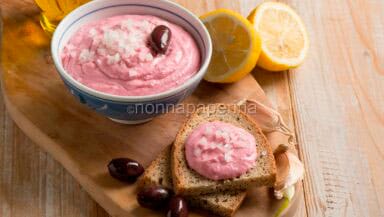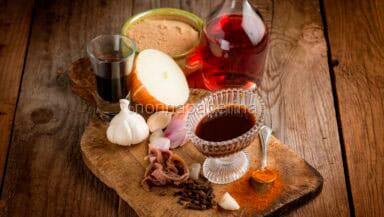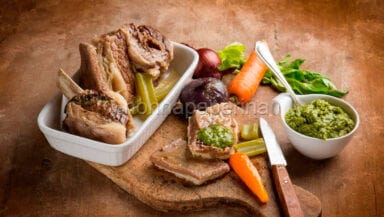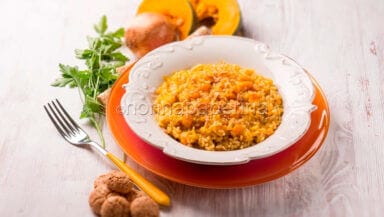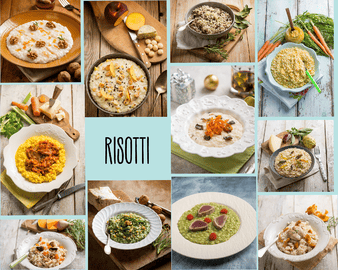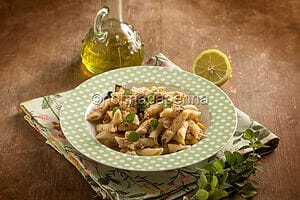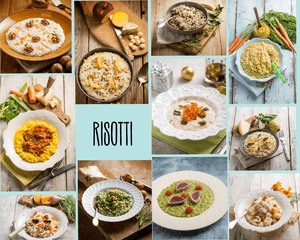Onion

A truly nutritious ingredient
It is one of the few ingredients that are actually consumed on all continents, from east to west and from north to south. From a botanical point of view, it is a bulb with a two-year life cycle. It is very versatile but prefers soils rich in water. The plant is able to resist the cold, although it does not tolerate temperature variations. Whether used as a condiment or as a main ingredient, onion always provides a certain amount of nourishment.
It contains a lot of fibre; therefore, it is able to support digestive processes, normalising the intestinal flora. It is rich in mineral salts such as sulphur, iron, potassium, magnesium, fluorine, calcium, and manganese. Onion also contains some antioxidants, such as flavonoids (which, among other things, have a diuretic action) and glucoquinin, which has an anti-diabetic function.
The most common types of onions
There are many types of onions, each of which is distinguished by colour, size, shape, and flavour. Here are some of the most popular varieties in Italy:
- Tropean red. It is the queen of onions, the one richest in antioxidants. It is characterised by an aromatic flavour tending towards sweetness, to the point of being consumed raw.
- It is a large variety, very tender, and has a tasty but not very intense flavour. It is used in pastries rather than baked in the oven.
- White onions from Barletta. It can be eaten raw or, more accurately, dipped in oil due to its extremely mild flavour.
- Golden Parm. It is one of the most consumed onions ever; it has a pungent flavour and is usually used for sautéing.
- It is a typically Umbrian variety. Externally, it resembles the Tropean Red; however, it is mainly used in the preparation of soups, given its delicate flavour.
- Ramata of Milan. It is characterised by an intense and medium-pungent flavour. It’s mostly used to make the traditional fried onion rings.
- Roscoff Rose. This is a very unique variety belonging to the Allium Cepa family. It is not so famous in Italy, and it is quite expensive. It is a traditional product from the Brittany town of Roscoff, which is situated on Finistère’s northern shore.
- Living Water. It is a very sweet product and has a peculiarly flattened shape. The living water onion is very rich in flavonoids, which are powerful antioxidants that fight the harmful actions of free radicals.
- Castrofilippo Paglina. It is a sweet variety with notable dimensions ranging from 500 g to over 2 kg, with rounded or heart-shaped bulbs of a brownish-white colour.
One of the most used ingredients in cooking
Onions can be eaten in two major ways: either as an ingredient in recipes or as a sautéed accompaniment in the cooking process. Among these standout salads are soups, side dishes, and stir-fries. In short, onions are very versatile ingredients.
The way onions are used primarily depends on the variety; for instance, Tropea red onions are mostly used in salads, often in combination with tomatoes. You can sample some of its versatility and discover other dishes where onions are the main ingredient below.
The tastiest onion-based recipes
There’s a reason the onion is considered a fundamental ingredient in Italian cuisine. The explanation is straightforward: this lightbulb is excellent and incredibly adaptable. These delectable recipes prove it.
Caramelised onions. A traditional side dish that pairs nicely with almost anything, but especially with stewed meats. Use red onions for this side dish, preferably from Tropea, and sauté them with sugar and balsamic vinegar for the occasion. Cooking calls for the least amount of supervision and constant water replenishment to keep the onions from sticking to the pan’s bottom.
Stuffed onion. The Living Water onion variety, distinguished by its fragrant fragrance and substantial size, is the one to use for this recipe. On the other hand, the stuffing is only oil and breadcrumbs.
Spiced baked onions. It is a very rich and simple side dish to prepare. In this side dish, simply season the onions with cinnamon, ginger, saffron, pepper, and other flavorings. The flavour is pungent and aromatic; it is also capable of expressing light, sweet notes.
Baked onion omelette. This is a very simple recipe, as well as a classic of Italian cuisine capable of giving great satisfaction. The process includes starting with an onion that has been sautéed and then adding an egg and Parmesan mixture to it. The onions are cooked in the oven, which preserves their firmness and tenderness while ensuring a certain level of lightness.
What are the benefits of onions?
Many people view onions as demanding veggies because of the strong flavour that some of their varieties exhibit. Whatever the hue, size, or mode of intake, it can be regarded as a body’s panacea, at least based on some features it offers. These are a few intriguing properties:
It is an antioxidant. There are plenty of antioxidants of every kind. Because of this, they also make it a valuable tool for delaying the ageing process of cells and a preventive factor against cancer.
It is antibacterial. Onion also acts as an antibacterial, playing an important role in preventing and resolving infections.
It’s detoxifying. Onion supports the activity of the liver and kidneys. Furthermore, it combats water retention thanks to its large water content.
It improves circulation and the heart. A reduced risk of cardiovascular disease is associated with a balanced onion diet. It plays a role in preventing atherosclerosis.
Lowers cholesterol and combats diabetes. Consuming onions more or less regularly allows you to keep bad cholesterol (responsible for heart attacks and strokes) and blood sugar under control.
Who shouldn’t eat onions? Here are the contraindications
Onion is quite digestible but still requires the help of the digestive system, especially if there are some pathologies or conditions capable of weakening the digestive system. The reference is to those suffering from stomach acidity, gastritis, ulcers, and irritable bowel syndrome.
It is rumoured that onions can only be digested when cooked. They contain digestive enzymes, which could undergo a degradation process if cooked.
The only real contraindication of onions, which can involve healthy individuals and those with pathologies without distinction, concerns the smell. In fact, onions can cause bad breath, although to a lesser extent than garlic. It is no coincidence that onions are often cooked, marinated, or even just seasoned with very fragrant spices.



